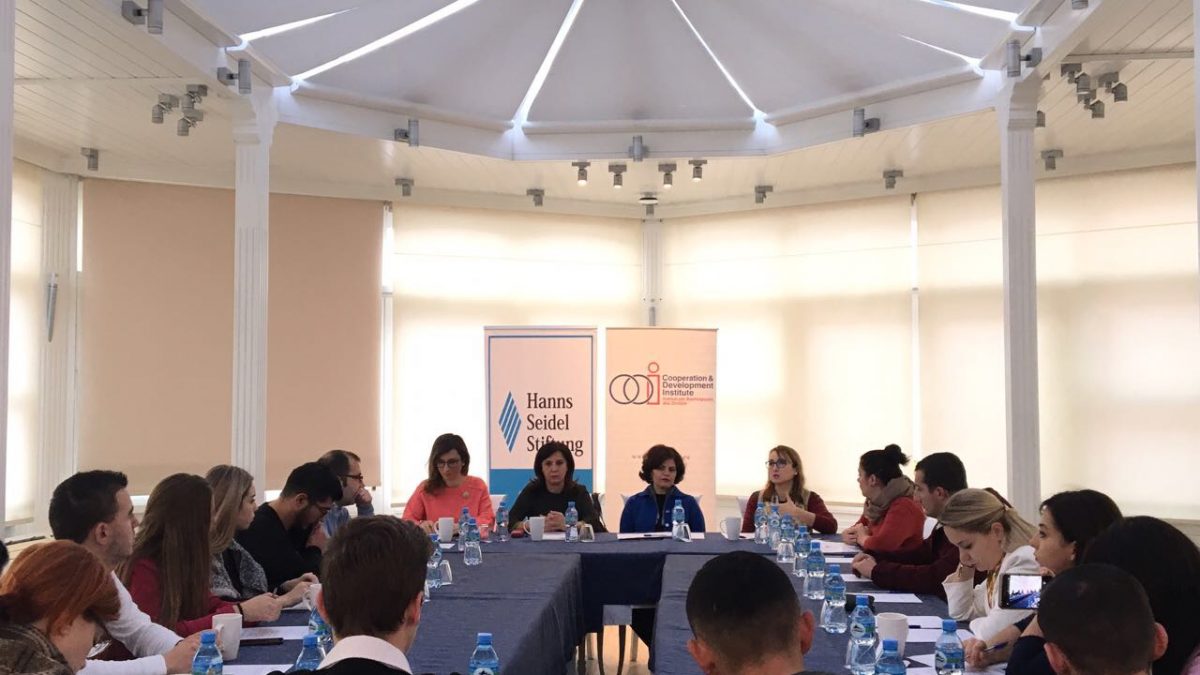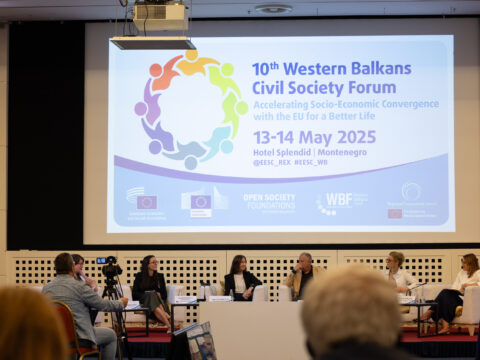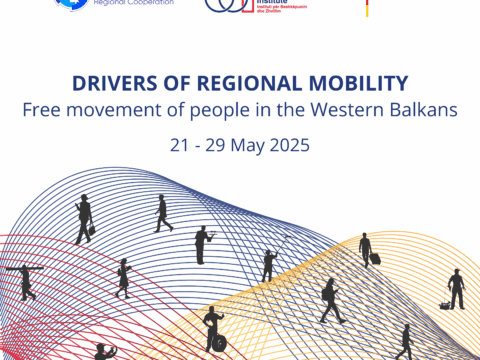Cooperation and Development Institute organized on Friday,15.12.2017, the round-table “Inter-Institutional Cooperation in the Field of Anti-Corruption Policies”. The main goal of this event was to present the preliminary findings of the research assessing the inter-institutional cooperation in the field of anti-corruption policies in Albania and to discuss on the efficiency of the available instruments of cooperation.
This study analyzes two specific instruments which regulate the inter-institutional cooperation: i) the Inter-Sectorial Strategy against Corruption 2015-2020, and ii) the Memorandums of Cooperation/ Understanding among the main institutions involved in the efforts to prevent and punish corruption.
The authors of this research, Ms. Krisela Hackaj and Ms. Ardita Shehaj, presented the findings of a thorough analysis of 72 memorandums signed by seven main institutions target of the research, such as the National Coordinator Against Corruption, High Inspectorate of Declaration and Audit of Assets and Conflict of Interests, State Supreme Audit Institution, General Prosecutor Office, General Directorate of Taxes, State Police and General Directorate for the Prevention of Money Laundering. From this research resulted that around 54% of the Memorandums of Understanding (MoU) are signed between the public administration institutions and the independent / constitutional institutions. The authors argued that there was an exponential growth in the use of the MoUs after 2010,with 75% of them signed after that year. The absolute majority of them have the same aim, that of facilitating the exchange and access to information. The authors also emphasized that all institutions declared that they do not have an inventory of the Memorandums and do not report periodically according to the tasks and obligations that do rise from the MoUs. The Memorandums are considered to be a public information, but in most of the cases they are not published on the official websites of these institutions. From interviews held with representatives of some of the institutions (they asked to remain anonymous sources), it can be concluded that the MoUs become relevant tools, when they enable the access of specific institutions to state databases. However, in most of the cases where MoUs are signed to facilitate exchange of information it results there is no regular follow up from the MoUs parties.
Ms. Eralda Cani, professor at the Faculty of Law of Tirana and former Deputy Minister for European Integration, emphasized the importance of inter-institutional cooperation in the framework of the European Integration process and the fulfillment of the tasks according to the Roadmap on the 5 Key Priorities of the EC. She also underlined that the assessment of the impact of MoUs should lead to make the necessary adaptations in the MoUs structure, especially of those ones signed by the public administration.
Ms. Lorena Pullumbi, an Anti-Corruption Expert and former Director at the National Coordinator against Corruption stated that the memorandums are useful to buildup the trust between cooperating institutions. In the framework of the Inter-Sectorial Strategy against Corruption, she also highlighted the importance to revise the Action Plan Strategy, adopt a sectorial approach in the Action Planing order to face with the needs of a new context and to strengthen the punishment measures of the Action Plan.
The full analysis, which is expected to be published in January 2018, aims to draw the attention on the efficiency of the instrument of Memorandum, on increasing the transparency of the public activities of the institutions involved in the fight against corruption, on consolidating the planning and monitoring strategic framework for the inter-sectorial strategies in place, and on supporting the monitoring and evaluations carried out by the civil society.
This roundtable was greeted by Ms. Nertila Mosko, director of Hanns Seidel Foundation Office Tirana, which generously supported the research.
The agenda can be consulted here.
The preliminary findings can be consulted here.






